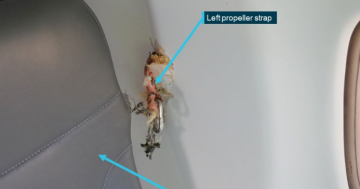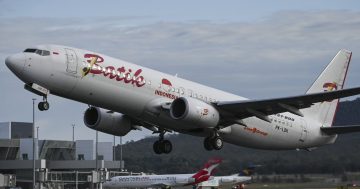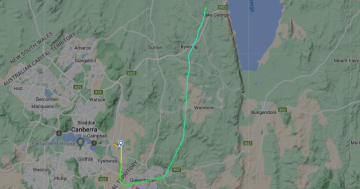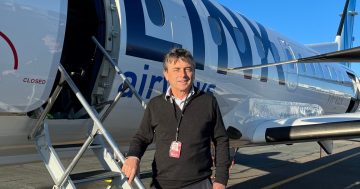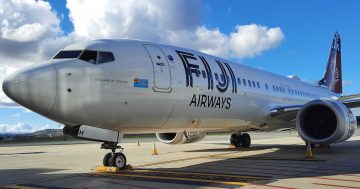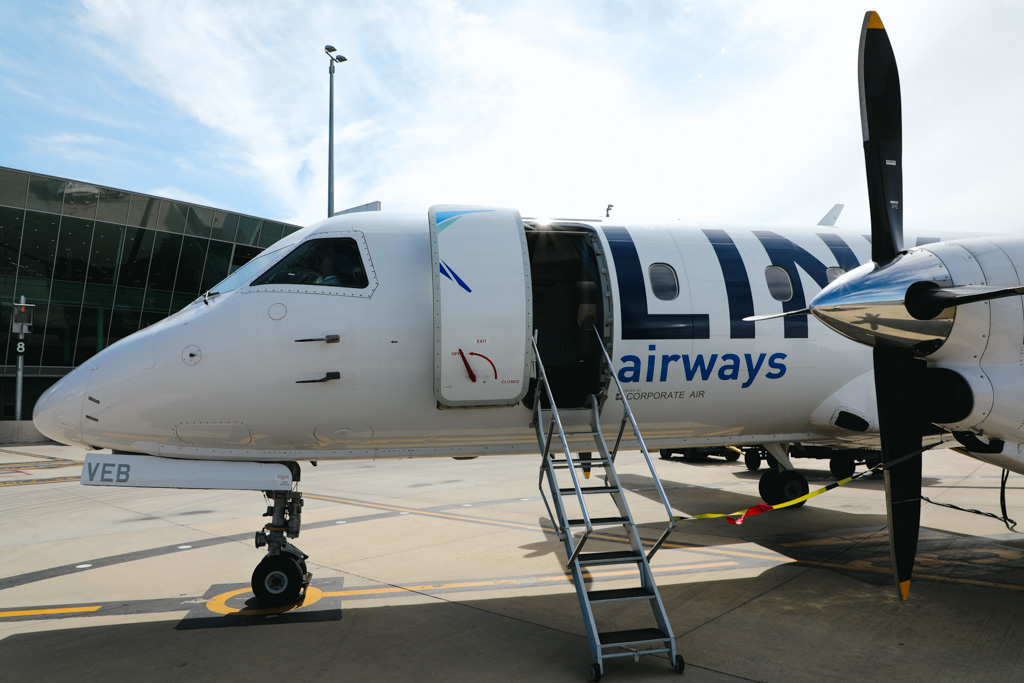
A Link Airways aircraft (similar to the one pictured) was forced to terminate its Canberra flight after an incident during take-off. Photo: Twitter, @linkairwaysau.
An investigation is underway following an incident that forced a small passenger plane to terminate its flight from Canberra to Sydney this morning (10 November).
Flight VA633, operated by Link Airways on behalf of Virgin Australia, left Canberra Airport but was forced to circle back.
Australian Transport Safety Bureau (ATSB) chief commissioner Angus Mitchell said a safety incident occurred during take-off from Canberra Airport.
“As reported to the ATSB, during take-off a ratchet strap that was not removed from one of the aircraft’s propellers struck the aircraft’s fuselage,” he said.
“Transport safety investigators from the ATSB’s Canberra office have deployed to Canberra Airport to inspect the aircraft, to begin the process of interviewing the flight crew and passengers, and to gather other relevant information for the investigation.”
A spokesperson with Virgin Australia Group confirmed the aircraft was involved “in an incident near Canberra Airport”.
“After becoming aware of the incident, the crew took steps in accordance with standard operating procedures to prioritise the safety of all guests and crew on board and conducted an air return in line with safety protocols,” they said.
“The aircraft landed safely at Canberra Airport and there were no physical injuries to passengers or crew on board.”
The spokesperson said everyone on board got off safely.
Canberra Airport CEO Stephen Byron also confirmed he was aware of an incident involving the Link Airways aircraft.
“All of the appropriate agencies have been contacted and an investigation is underway,” he said.
“There are no other delays to operations at Canberra Airport.”
The aircraft was a Saab 340B Plus which is a twin-engine turboprop designed to seat 34 passengers.
“[It] is among the most advanced turboprop aircraft type in service today with class-leading fuel economy combined with comfortable seating, large, easy-to-access overhead bins, and convenient on-board lavatory to ensure an exceptional in-flight passenger experience,” Link Airways described the aircraft on its website.
The Fyshwick-based company confirmed 29 passengers were on board at the time of the incident, along with three crew.
“In accordance with our Emergency Response Plan we will be cooperating fully with, and participating in, the investigation of the circumstances of the incident but cannot provide information on the possible causes,” a spokesperson said.
The ATSB will publish a final report, detailing contributing factors and any identified safety issues, at the conclusion of the investigation.
However Mr Mitchell said if any critical safety issues were identified at any stage of the investigation, relevant parties would be notified so appropriate safety action could take place.
“The ATSB conducts ‘no blame’ transport safety investigations into aviation, marine and rail accidents and incidents for the greatest public benefit, and prioritises its resources on occurrences that are most likely to identify broader, systemic safety issues,” he said.
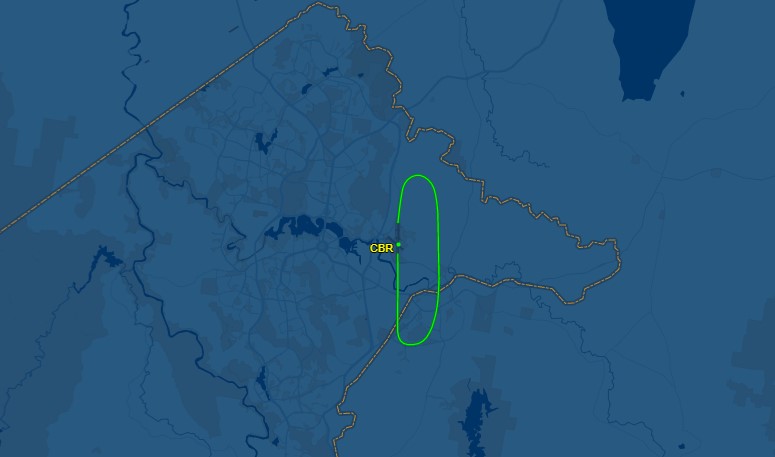
The Link Airways flight was forced to turn around following an undisclosed issue. Photo: FlightAware.













